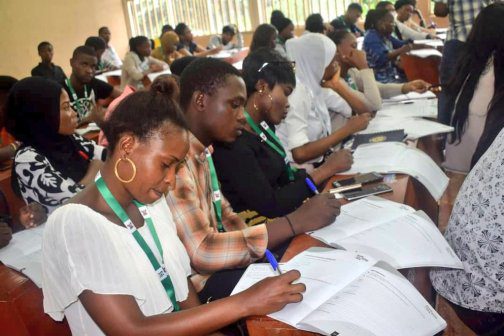Educational Issues
Academic Retaliation Silences Students In Public Universities -By Fadeela Mustapha Lawan
To address the problem, one potential solution is to implement a whistleblower protection policy at universities. This policy would ensure that students who report misconduct by their lecturers are not punished for doing so, and that any retaliation by their lecturers or the university administration is promptly addressed. In addition, other possible solution includes establishing clear and enforceable policies against misconduct by lecturers, with clear consequences for violations.

Students in public universities describe a culture of fear and intimidation, with some of their lecturers often using verbal abuse and humiliation to silence them. Those who dare to speak up report being ostracized and might have impact on their grades. The lack of a safe reporting mechanism for students makes it difficult to seek justice or accountability, leaving them feeling powerless in the face of abuse of power.
There have been several reports and allegations of mistreatment of students by lecturers in public universities in Nigeria. Some reports describe abusive verbal and physical treatment and other forms of exploitation. There have also been reports of discrimination based on gender, class, or other factors. While not all lecturers in public universities are alleged to have engaged in these behaviors. The National Policy on Education (NPE) calls for the protection of the rights of students and teachers, and the provision of a safe and secure learning environment. However, despite the existence of laws such as the Violence Against Persons (Prohibition) Act of 2015, some lecturers still take advantage of students’ silence and engage in abusive verbal behavior, making it difficult for some students to feel comfortable in their learning environment.
One report that has received significant media attention is the 2016 case of Dr. Boniface Igbeneghu, a lecturer at the University of Lagos who was accused of sexual harassment and assault by multiple female students. Igbeneghu was later suspended from his teaching position at the university, and several other lecturers were also accused of misconduct. There is evidence that verbal abuse by lecturers in public universities can have a negative impact on students’ mental health, academic performance, and overall well-being. When students are subjected to insults and shouting from their lecturers, they may experience feelings of shame, humiliation, anxiety, and depression. These negative emotions can lead to a lack of motivation and interest in their studies, resulting in poor academic performance. Additionally, students who are abused by their lecturers may feel isolated and alone, which can lead to social withdrawal and an increased risk of suicide.
There have also been reports of students being penalized or retaliated against after reporting their lecturers for misconduct. This can be a serious problem, as it discourages students from reporting misconduct and allows abusive behavior to continue. Some of the reported cases of retaliation have included students being given lower grades, denied access to research opportunities, or even dismissed from their programs. This kind of retaliation is not only unfair and unethical, but it also violates the rights of students and creates a hostile environment for learning.
Studies have shown that when students are subjected to abusive verbal behavior by their lecturers, they are less likely to participate in class discussions and activities. This is because they may feel intimidated, afraid to speak up, or worried about being ridiculed by their peers. The abuse can also affect their confidence and self-esteem, which can make it difficult for them to focus on learning and retain information. In extreme cases, students may even avoid attending class altogether to avoid the abusive environment. Under the University Miscellaneous Provisions (Amendment) Act of 2012, universities must follow the disciplinary procedures laid out in the act when dealing with student misconduct, including disrespectful or disruptive behavior. The act outlines specific offenses, such as insubordination, defamation, assault or threats, and requires universities to impose sanctions, such as suspension or expulsion, on students who are found guilty of violating the code of conduct.
To address the problem, one potential solution is to implement a whistleblower protection policy at universities. This policy would ensure that students who report misconduct by their lecturers are not punished for doing so, and that any retaliation by their lecturers or the university administration is promptly addressed. In addition, other possible solution includes establishing clear and enforceable policies against misconduct by lecturers, with clear consequences for violations. Providing training for lecturers on appropriate professional boundaries and respectful communication, regularly monitoring and evaluating the behavior of lecturers to identify and address any patterns of misconduct. Encouraging students to report incidents of misconduct by their lecturers, and providing support for students who do so. Providing resources and support for students who have experienced misconduct, including counseling and academic support and lastly regularly surveying students about their experiences
Fadeela Mustapha Lawan wrote from the Department of Mass Communication, Borno State University.


















